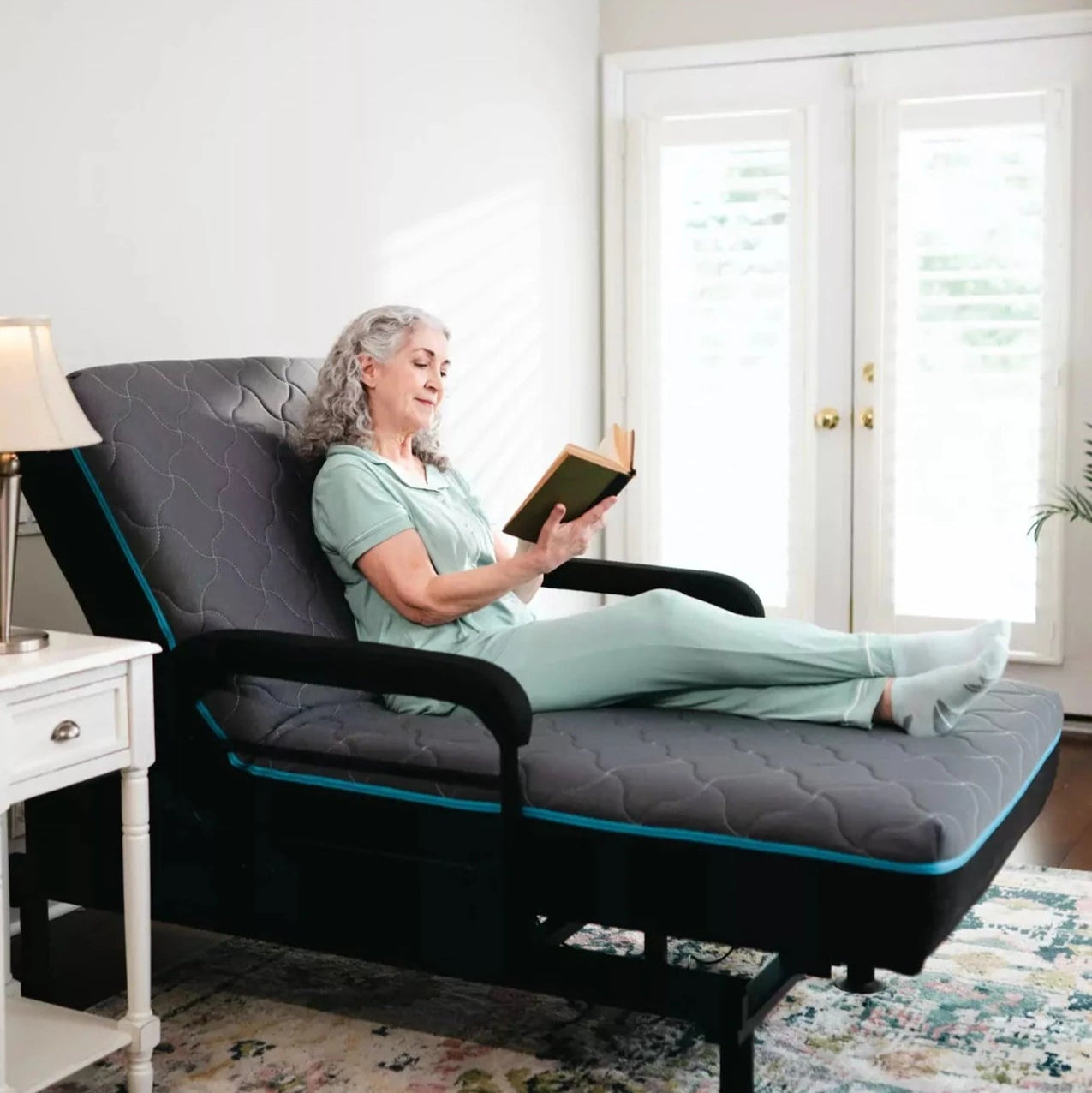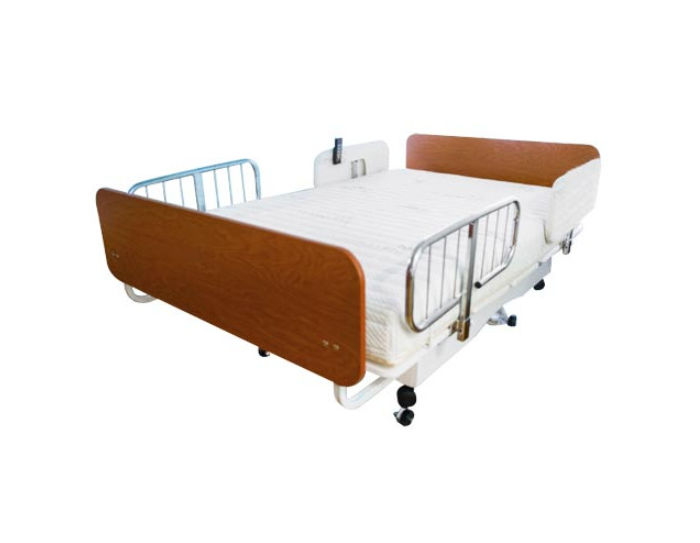Some Ideas on Hospital Beds For Home Use You Need To Know
Some Ideas on Hospital Beds For Home Use You Need To Know
Blog Article
Not known Factual Statements About Hospital Beds For Home Use
Table of ContentsThe Facts About Hospital Beds For Home Use RevealedHospital Beds For Home Use Can Be Fun For Anyone10 Simple Techniques For Hospital Beds For Home UseHospital Beds For Home Use - An OverviewThe Best Strategy To Use For Hospital Beds For Home UseHospital Beds For Home Use Things To Know Before You BuyTop Guidelines Of Hospital Beds For Home Use
There are three primary types of healthcare facility beds: guidebook, semi-electric, and fully-electric. These beds use hand cranks to adjust the bed's height and raise and lower the head and the foot.
Semi-electric beds have an electric motor to raise and lower the head and foot sections of the bed. People and caretakers readjust the placing by pressing buttons using a hand necklace. The elevation of the bed is changed manually with a hand crank. Full-electric beds have an electric motor that can raise the head and foot areas of the bed along with the whole height and positioning of the bed.
Unknown Facts About Hospital Beds For Home Use
Some versions can also relocate into even more positions, such as the Trendelenburg (tilt) placement. There are a number of kinds of healthcare facility beds, each developed to fulfill particular person requirements. Below are some typical kinds: This is the most typical sort of health center bed, developed for basic medical use. It has a guidebook or electrically adjustable headrest, footrest, and elevation.
Lower to the ground than a common bed. This kind of bed is developed for bigger people, with a bigger framework and greater weight ability than a standard bed.
This sort of bed is created for seriously ill patients who require open surveillance and specialized clinical tools such as ventilators and mixture pumps. This kind of bed is developed for usage throughout labor and shipment, with adjustable placements and attributes to support the mommy and baby throughout the birth procedure.
Not known Incorrect Statements About Hospital Beds For Home Use
Multiple feature and the devices do increasing grip to different parts of the vertebra and the extremities without relocating the body. These are simply a few examples of the types of hospital beds offered. The certain type of bed utilized will certainly depend upon the person's condition, medical needs, and other elements.
Right here is the thing you require to understand. A one-function hospital bed is a clinical bed that allows a person to move just the head or foot section up or down. A 2 feature hospital bed usually describes a kind of clinical bed that has two flexible functions to assist clients in healthcare facilities or care centers.

The Best Guide To Hospital Beds For Home Use
A 7-function ICU bed is a type of medical bed that gives numerous adjustable functions to support seriously ill patients in a critical care unit (ICU) (hospital beds for home use). The seven functions generally include: Backrest change: The backrest can be adapted to various angles to help the person stay up or rest comfortably
Height change: The bed can be elevated or reduced to make it less complicated for people to enter and out of bed, and for caretakers to supply care. Trendelenburg position: The whole bed can be tilted to promote blood circulation and circulation in the body. Reverse Trendelenburg position: The bed can additionally be slanted in the opposite instructions to advertise go to website blood circulation and blood circulation in the upper body.
While even more affordable than electrical designs, these beds require physical effort for changes. The primary advantages of hand-operated beds are their cost and reliability, as they do not rely upon electricity. The requirement for hand-operated initiative can be a constraint in situations where fast adjustments are essential or where caregivers encounter physical challenges.
Excitement About Hospital Beds For Home Use
Semi-electric healthcare facility beds use a balance of manual and electric controls. These beds provide a perfect middle ground between manual and fully electrical alternatives, supplying convenience of usage without the complete expense of electric models.
Semi-electric beds are well-suited for patients that require moderate adjustments to the head and foot sections yet can handle without regular height changes. This makes them a cost-efficient remedy for those looking for comfort and convenience without the demand for consistent repositioning. Totally electric medical facility beds feature electrical controls for smooth adjustments to navigate to this site the elevation, head, and foot sections.
Specialized health center beds, such as ICU beds, long-lasting treatment beds, and bariatric beds, are very carefully designed to resolve particular clinical requirements. These beds supply customized take care of varied person groups, enhancing both results and convenience. In the adhering to areas, we will certainly discover the primary kinds of specialized medical facility beds, detailing their specific advantages and applications.
With years of experience in producing electrical straight actuators - hospital beds for home use and close cooperation with the health care industry, TiMOTION is well-positioned to give reputable healthcare services. Our vertically integrated company manages every step of the production process, from layout to actuator assembly, guaranteeing we supply outstanding worth and personalized options tailored to your particular requirements
The smart Trick of Hospital Beds For Home Use That Nobody is Discussing

To read more regarding incorporating these innovations into your items, call us today. Additional analysis:.
Data is sourced from the Medicare Expense Report.

Hospital Beds For Home Use - An Overview
A health center bed is a bed made especially for medical functions. It is not only a place for people to rest, but likewise a platform for medical procedures. Unlike ordinary home beds, medical facility beds usually have adjustable attributes, which can assist in clinical personnel to make various changes according to the requirements of patients, such as altering the elevation, disposition, and support angle of the back and legs of the bed.
Report this page